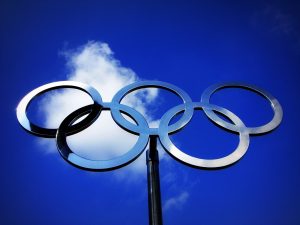There is no denying that either relocating or collectively boycotting the Beijing 2022 Winter Olympics would be a significant move.
However, both options are being raised by several countries, given that alternative diplomatic approaches have yielded little impact and seemingly emboldened both Beijing’s repression of the Uyghurs in Xinjiang and its use of economic and diplomatic coercion against other nations.
On Monday, Canada’s House of Commons voted resoundingly in favor of declaring that China is committing genocide on Uyghurs. While Prime Minister Justin Trudeau and his cabinet abstained, the House of Commons also voted in favor of calling on the International Olympic Committee (IOC) to move the 2022 Winter Olympics from Beijing.
This has not gone unnoticed globally, including by the many who find themselves increasingly under the thumb of a retribution-seeking Beijing, including Australia.
Independent Australian Senator Rex Patrick, who has called for an Australian boycott of the Games, said that he “welcomes Canada’s decisive actions and will continue to push for the same here in Australia.”
The Canadian developments come as British Foreign Secretary Dominic Raab called for an investigation into “industrial scale” human rights abuses in Xinjiang. Raab, speaking at the U.N. Human Rights Council, also raised his concerns over the “systemic violation” of human rights in Hong Kong.
Similar comments were echoed by the German Foreign Minister Heiko Maas, while the Netherlands has just followed suit in recognizing the Chinese government’s treatment of the Uyghurs as genocide. China’s Foreign Minister Wang Yi has continued to deny the existence of any human rights abuses.
The initial major obstacle in either moving or boycotting the Games is the IOC, which continues to try steer as far away from politics as possible.
In Australia, John Coates, president of the Australian Olympic Committee and vice president of the IOC, has previously shot down suggestions of a boycott providing a series of claims that suggest it would harm Australia’s position with the governing body.
This comes as Brisbane was announced as the expected host of the 2032 Summer Games, which will likely add some level of caution for political figures who many have previously raised their concerns over the 2022 Games.
Earlier this month, Dick Pound, the longest serving member of the IOC, said that “the Games are not Chinese Games, the Games are the IOC Games.”
A stated goal of Olympism, as per the Olympic Charter, is the promotion of a peaceful society concerned with the preservation of human dignity. It also states that belonging to the Olympic Movement requires compliance with the Charter.
When rebuking Coates last year, Patrick stated, “if the IOC were serious about enforcing the provisions of the Olympic Charter, China would not be a member.”
Both Pound’s and Coates’ comments have shown how the IOC selectively adheres to its own Charter.
In the face of mounting global criticism, Beijing has effectively doubled-down. It will likely continue to use international forums to stymie concerns, as it already has regarding its human rights record, and isolate countries in order to maximize its game of intimidation and coercion.
The 2022 Beijing Games will serve as a nation building exercise, celebrating Chinese culture and history, but it will also be done in such a way as to further legitimize the Chinese Communist Party (CCP)’s actions.
Either action, whether relocation or boycott, would be considered a significant escalation by the CCP, which utilizes strong national sentiment as a way to justify and consolidate its rule. The potential use of foreign athletes as propaganda pawns will also need to be carefully considered by participating countries.
If the IOC fails to act on moving the Games, as expected, the debate of an international collective boycott will continue to grow, which will see athletes caught in the political crossfire.
Any such moves would likely be met with sizable response from China. Hu Xijin, editor-in-chief for the Global Times, has labelled calls for a boycott as “hysterical” and stated that “China will seriously sanction any country that follows such a call.”
Just how much political will exists globally to push for either a relocation or boycott will be subject to the scale of China’s response toward individual countries.
We are now a year out from the Beijing Games and the debate will only get louder.
Philip Citowicki is an Australian foreign policy commentator and was an advisor to former Australian Foreign Minister Julie Bishop.
































